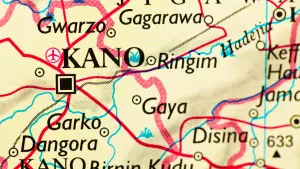The coronavirus pandemic wasn’t the first of its kind, it had precedents like the 1918 Spanish Flu that claimed the lives of approximately 500 million people. This flu, according to research, was contained by the institution of a lockdown. Hence, the implementation of the “lockdown” during the Covid-19 pandemic was a clever attempt at containing the spread.
Lockdowns in Nigeria
Despite the seemingly disruptive effects of the lockdown, it beheld a milieu of benefits and, was largely helpful to the containment of the virus world wide, most specifically, developing countries. The virus’s mode of spread was by bodily contact and a lockdown meant the prohibition of outdoor activities including [but not limited to] businesses, government corporations, etc. However, it would be capitalistic to allow humans move at their own wherewithal thereby preserving the economy but at the expense of these humans. Health is wealth.
The economy will eventually crumble if the lockdown order wasn’t implemented and the virus spread like breeze. We all are testaments to how riveting this virus could be and its consequences in the human body which includes death and since no preventative vaccine has been found, the new normal came in handy at minifying the spread. Asides containment of the spread of the Coronavirus as a benefit of the lockdown, it also made us realise the need for vigilance and the need for backup plans.
The New Normal
The virus caught everyone unaware, no one saw it coming and never thought it right to prepare ahead for unforeseen circumstances in business strategies and lifestyle. This sense of improvisation and dynamics is another benefit of the lockdown. Had the “New Normal” not been implemented and people allowed to go on with their daily activities, we might not have understood the need to factor in backups to whatever plans we make.
The Health Sector
In furtherance, the health sector which has been brazen faced and less prioritised in Sub-Sahara African countries has become raised to the status of importance by the lockdown. Only healthcare professionals were allowed undisturbed movement and this sacrifice of self by healthcare professionals was the height of humanity. International journeys were cut short and international movement, banned.
Hence, the leaders of developing countries like Nigeria had to resort to using local hospitals. If the lockdown wasn’t in place, they would not have realised how wrecked the Nigerian Health sector is, and, thought it necessary to deck those hospitals with competent health care professionals and modern equipments that ease medical work for Nigerian doctors. Also, the need for technological advancement in trade and education.
Education
All educational were shut and business slammed. The economical blow dealt by the lockdown would have been minimal if digital solutions had been duly implemented hitherto the lockdown. The lockdown opened the eyes of all and sundry to the essence of digitalisation, the importance and use of the internet in trade and education and nudge people to learn ways to implement these solutions in their various niches.
Final Thoughts
Last but not least, the lockdown made us reflect on our interaction with kith and kin as they were the ones we were left with. It made us understand the place of family in ensuring our emotional balance and the importance of keeping good relationship with our neighbours. It also made us more compassionate and tender, nudged us to expand the breadth of our support to kith, kind and even strangers. Hence, we know now, that with a world peopled with kindness and compassion, no obstacle will ever be too big to surmount.








